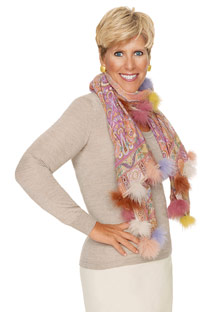Who Is Responsible for Hurricane Damages?

Photo: Marc Royce
Q: My daughter and son-in-law lost everything to Hurricane Katrina, including their house and car; they're living with me now in Florida. At first their mortgage company said they didn't need to make a payment for three months after the disaster; now they're saying, "Oh, by the way, you do have to pay for those months"—meaning, for a place they can't live in. To make matters worse, they still haven't gotten anything from either their homeowner's or hurricane insurance. They're trying so hard to be strong, and I'm desperate to help, but we're spinning our wheels. Can you point us in the right direction?
A: You have every right to feel at your wit's end, but it's important to realize that your daughter and son-in-law did not lose everything: They have each other, they have their health, and they have you. The ability to give and receive love can never be diminished by any natural disaster.
Now let's talk about their financial situation. Everyone, not just Katrina victims, is learning some hard lessons about home insurance. Most standard policies cover damage from wind but not flooding (see "Are You Sure You're Insured?" below).
The hard truth about their mortgage (and everyone else's) is that they are responsible for the balance, no matter the condition of the house. Of course, their goal is to get an insurance payout. In the meantime, they should ask for their payment deferment to be extended: Federal agencies have given their blessing for many lenders to stretch the grace period up to 12 months. And despite FEMA's fumbled efforts to anticipate the recovery help needed, it is through FEMA that your daughter and son-in-law may be eligible for additional relief (800-621-FEMA or www.fema.gov). They can also try getting a low-interest loan from the Small Business Administration (800-659-2955 or www.sba.gov), which isn't only for businesses, and investigate buying a new home through the Federal Housing Administration's 203(h) program, which might make them eligible for a no-down-payment mortgage (888-297-8685 or www.hud.gov).
Most important, they are to take advantage of their inner strength. What we've got inside us—our humanity, our ability to help one another—is our greatest asset.
A: You have every right to feel at your wit's end, but it's important to realize that your daughter and son-in-law did not lose everything: They have each other, they have their health, and they have you. The ability to give and receive love can never be diminished by any natural disaster.
Now let's talk about their financial situation. Everyone, not just Katrina victims, is learning some hard lessons about home insurance. Most standard policies cover damage from wind but not flooding (see "Are You Sure You're Insured?" below).
The hard truth about their mortgage (and everyone else's) is that they are responsible for the balance, no matter the condition of the house. Of course, their goal is to get an insurance payout. In the meantime, they should ask for their payment deferment to be extended: Federal agencies have given their blessing for many lenders to stretch the grace period up to 12 months. And despite FEMA's fumbled efforts to anticipate the recovery help needed, it is through FEMA that your daughter and son-in-law may be eligible for additional relief (800-621-FEMA or www.fema.gov). They can also try getting a low-interest loan from the Small Business Administration (800-659-2955 or www.sba.gov), which isn't only for businesses, and investigate buying a new home through the Federal Housing Administration's 203(h) program, which might make them eligible for a no-down-payment mortgage (888-297-8685 or www.hud.gov).
Most important, they are to take advantage of their inner strength. What we've got inside us—our humanity, our ability to help one another—is our greatest asset.



